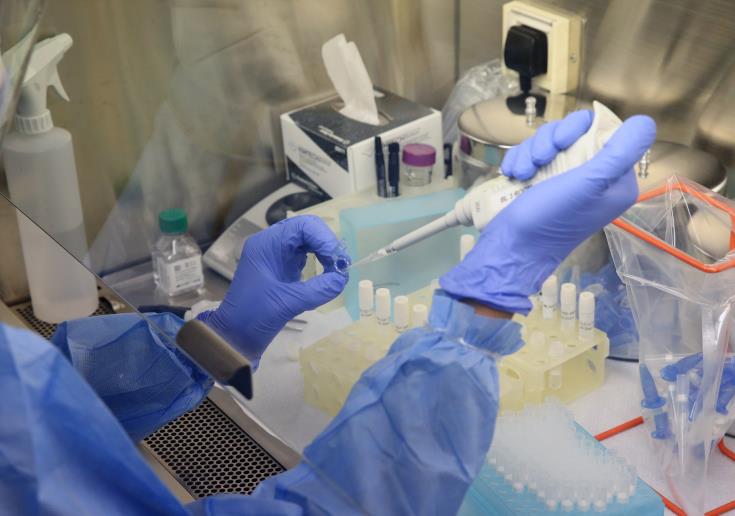Health experts believe the Delta variant of the coronavirus has completed its life cycle in Cyprus, allowing for daily new COVID cases to stabilise.
Epidemiologist Dr Michalis Voniatis told the Cyprus News Agency that despite estimates the more contagious Delta has long peaked, vaccinations need to pick up speed if authorities want to prevent a new variant.
Dr Voniatis said that the double- and triple-digit cases of COVID-19 being reported recently are not satisfactory.
“To feel safe, we must have sporadic cases, that is, from zero to five or six a day. For that, we still have a long way to go”.
He said there are probably more cases in the community than those officially recorded, as only people who are forced to get tested for a Safe Pass are regularly tested.
The epidemiologist said cases seem to be stabilising at around 100 a day, as authorities have kept the spread of the virus in schools low.
“We’ll have a clearer picture of the spread of the virus in schools next week.
“Currently, we are happy with the situation.
“However, if schools keep on observing health regulations, we should see cases go down even further.”
With the exemption of a cluster of 33 cases found at a school at the beginning of the year, since then, cases in schools have been in the single-digit range.
The epidemiologist said health authorities would need to find ways to boost the vaccination rate to keep any future new variants from rapidly spreading in the community.
“The vaccination rate is slow, as we have yet to push past the 80% (fully vaccinated) mark.
“The virus is currently circulating among young people, and therefore efforts should be made to speed up vaccination.
“Acceleration of vaccinations is necessary if we want to shield the community against a new variant to be able to circulate quickly.”
Voniatis estimates there are 150,000 to 200,00 unvaccinated people in Cyprus, which could facilitate the spread of a new, more potent variant.
He said scientists fear the emergence of new variants, especially in countries with very low vaccination rates, and the virus is spreading fast.
“Yes, there is always a possibility to see a new variant of the virus.
“At the moment, however, we do not have anything specific to worry about.
“Even the “Mu” variant does not seem to be able to spread faster than the Delta and has not replaced it, so we are not concerned.”
He urged people to get vaccinated as soon as possible, as vaccinations have allowed Cyprus to put a lid on the fourth wave of infections.
The total of SARS-CoV-2 infections since the pandemic started in March 2020 is 118,957 and 547 deaths. (source CNA)










